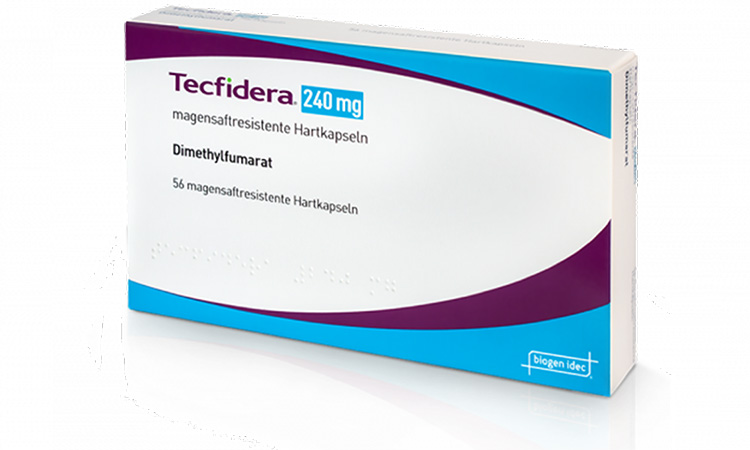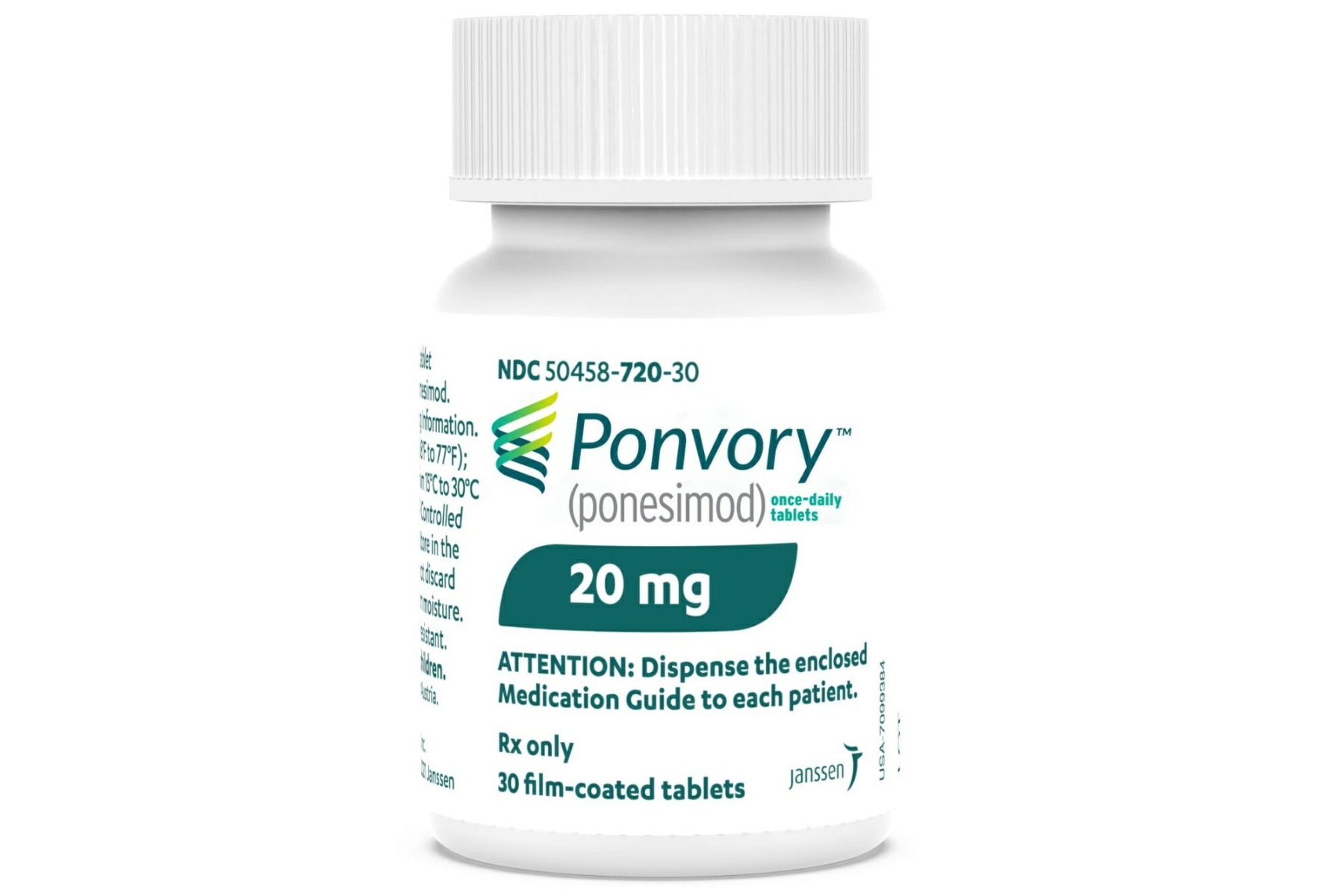Tecfidera (dimethyl fumarate) vs Ponvory (ponesimod)
Tecfidera (dimethyl fumarate) vs Ponvory (ponesimod)
Tecfidera (dimethyl fumarate) and Ponvory (ponesimod) are both oral medications used to treat relapsing forms of multiple sclerosis (MS), but they work through different mechanisms of action. Tecfidera is thought to modulate the immune response and reduce inflammation by activating the Nrf2 pathway, potentially protecting against oxidative stress. In contrast, Ponvory is a selective sphingosine-1-phosphate receptor modulator that traps immune cells in lymph nodes, preventing them from reaching the central nervous system and causing damage. When deciding which medication is right for an individual, it is important to consider factors such as the drug's efficacy, side effect profile, dosing schedule, and how it interacts with the body's immune system, as well as any pre-existing health conditions and the patient's lifestyle. A healthcare provider can offer detailed information and guidance tailored to the individual's specific medical history and treatment goals.
Difference between Tecfidera and Ponvory
| Metric | Tecfidera (dimethyl fumarate) | Ponvory (ponesimod) |
|---|---|---|
| Generic name | Dimethyl fumarate | Ponesimod |
| Indications | Relapsing forms of multiple sclerosis (MS), including clinically isolated syndrome, relapsing-remitting disease, and active secondary progressive disease | Relapsing forms of multiple sclerosis (MS), including clinically isolated syndrome, relapsing-remitting disease, and active secondary progressive disease |
| Mechanism of action | Activates the nuclear factor (erythroid-derived 2)-like 2 (Nrf2) pathway, which may reduce oxidative stress and inflammation | Sphingosine-1-phosphate receptor modulator, which traps lymphocytes in lymph nodes, reducing their migration into the CNS |
| Brand names | Tecfidera | Ponvory |
| Administrative route | Oral | Oral |
| Side effects | Flushing, abdominal pain, diarrhea, nausea | Upper respiratory infection, elevated liver enzymes, high blood pressure, and bronchitis |
| Contraindications | Known hypersensitivity to dimethyl fumarate or any of the excipients | Patients with a CYP3A4 inducer, severe hepatic impairment, recent myocardial infarction, stroke, or certain types of heart failure |
| Drug class | Fumaric acid ester | Sphingosine 1-phosphate receptor modulator |
| Manufacturer | Biogen | Janssen Pharmaceuticals |
Efficacy
Efficacy of Tecfidera (Dimethyl Fumarate) in Treating Multiple Sclerosis
Tecfidera (dimethyl fumarate) is an oral medication approved by the Food and Drug Administration (FDA) for the treatment of relapsing forms of multiple sclerosis (MS), including clinically isolated syndrome, relapsing-remitting disease, and active secondary progressive disease. The efficacy of Tecfidera in MS was demonstrated in two pivotal phase III clinical trials, DEFINE and CONFIRM, which showed that it significantly reduced the relapse rate in patients with relapsing-remitting MS compared to placebo. Additionally, Tecfidera was associated with a reduction in the number of new or enlarging brain lesions as detected by MRI scans, which is a common measure of disease activity in MS.
Furthermore, an extension of the DEFINE and CONFIRM trials provided long-term data on the efficacy of Tecfidera. Over a period of up to five years, Tecfidera continued to demonstrate a sustained reduction in relapse rates and MRI lesion activity. The drug also showed a positive impact on slowing the progression of disability, which is a critical aspect of managing MS. However, it is important to note that individual responses to the medication can vary, and not all patients may experience the same level of benefit.
Efficacy of Ponvory (Ponesimod) in Treating Multiple Sclerosis
Ponvory (ponesimod) is another oral medication that has been approved by the FDA for the treatment of adults with relapsing forms of multiple sclerosis, including clinically isolated syndrome, relapsing-remitting disease, and active secondary progressive disease. The efficacy of Ponvory was primarily demonstrated in a phase III clinical trial known as OPTIMUM, which compared Ponvory to another MS medication, teriflunomide. The results indicated that Ponvory was superior to teriflunomide in reducing the annual relapse rate. Additionally, Ponvory showed greater efficacy in reducing the number of new MRI-detected lesions and brain volume loss, which are important indicators of MS disease progression.
Moreover, Ponvory has a mechanism of action that involves the selective sphingosine-1-phosphate receptor 1 (S1P1) modulation, which is thought to reduce the migration of lymphocytes into the central nervous system, thereby reducing the inflammatory process that contributes to the demyelination and neuronal damage characteristic of MS. The clinical trial data suggest that Ponvory can provide a meaningful reduction in disease activity for individuals with relapsing forms of MS. As with any medication, the response to Ponvory can vary among patients, and its long-term efficacy and safety profile continue to be studied.
Regulatory Agency Approvals
Tecfidera
-
European Medical Agency (EMA), European Union

-
Food and Drug Administration (FDA), USA

-
Health Canada

-
Therapeutic Goods Administration (TGA), Australia

-
Medsafe (NZ)

Ponvory
-
European Medical Agency (EMA), European Union

-
Food and Drug Administration (FDA), USA

Access Tecfidera or Ponvory today
If Tecfidera or Ponvory are not approved or available in your country (e.g. due to supply issues), you can access them via Everyone.org.
How it works

Make an enquiry
Choose the medicine you want to buy, answer a couple of questions, and upload your prescription to speed things up. We’ll get back to you within 24 hours.


Make an enquiry
Choose the medicine you want to buy, answer a couple of questions, and upload your prescription to speed things up. We’ll get back to you within 24 hours.


Breeze through the paperwork
We'll guide you through the required documents for importing unapproved medicine, ensuring you have all the necessary information.


Get a personalized quote
We’ll prepare a quote for you, including medicine costs and any shipping, administrative, or import fees that may apply.


Receive your medicine
Accept the quote and we’ll handle the rest - sourcing and safely delivering your medicine.

Some text on this page has been automatically generated. Speak to your physician before you start a new treatment or medication.
Let's talk
If you have any questions, call us or send us a message through WhatsApp or email:
Contact us




